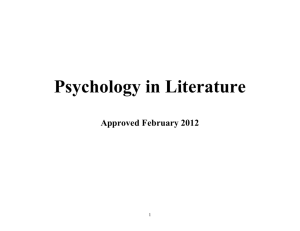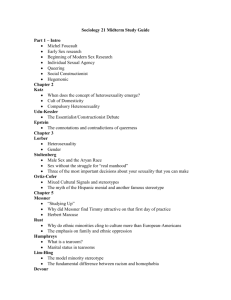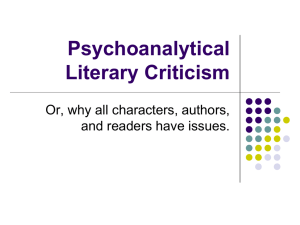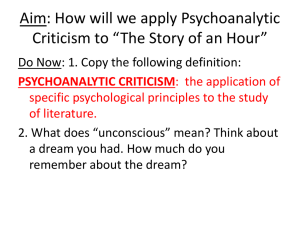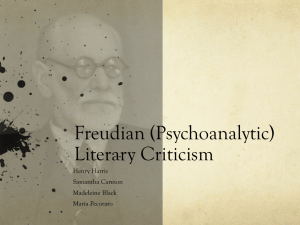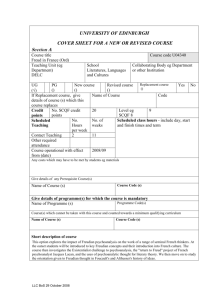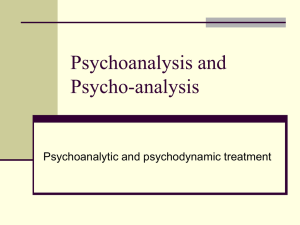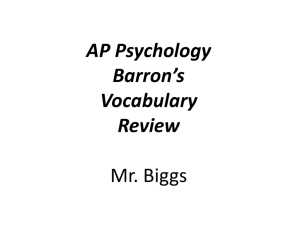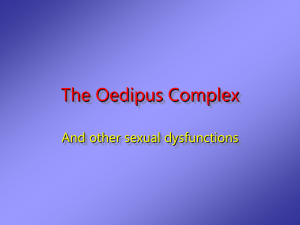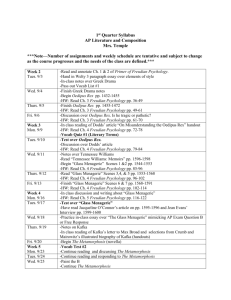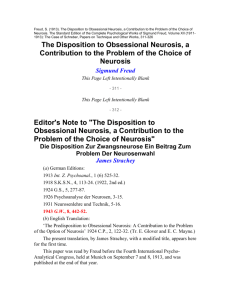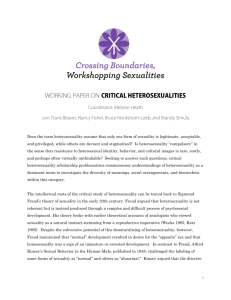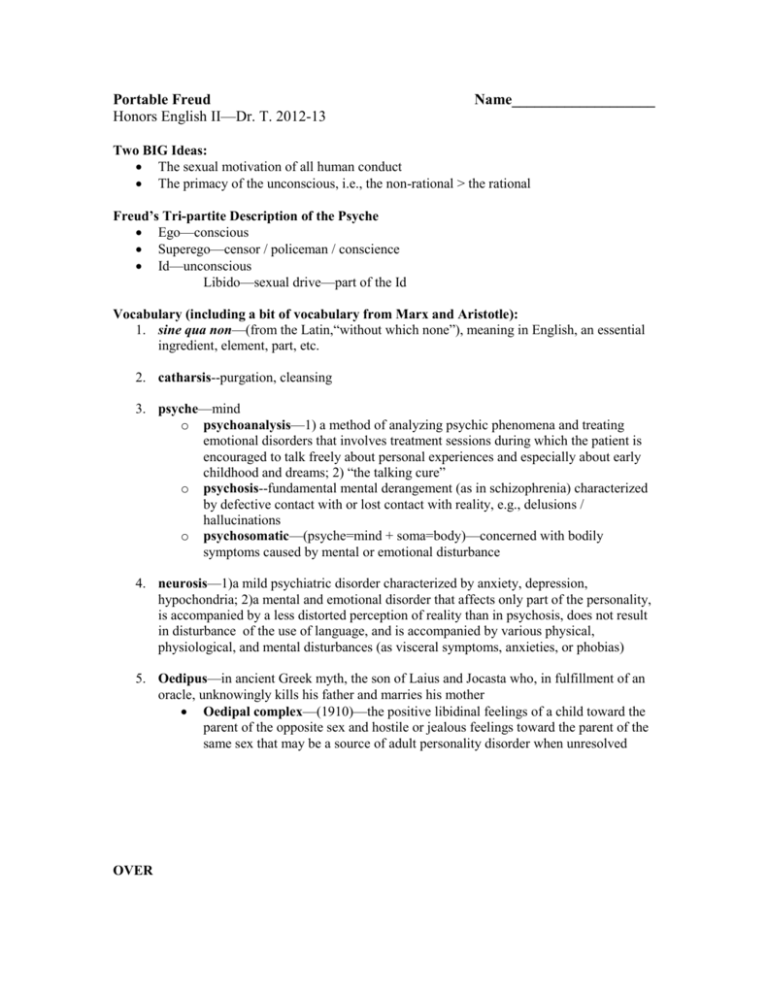
Portable Freud
Honors English II—Dr. T. 2012-13
Name___________________
Two BIG Ideas:
The sexual motivation of all human conduct
The primacy of the unconscious, i.e., the non-rational > the rational
Freud’s Tri-partite Description of the Psyche
Ego—conscious
Superego—censor / policeman / conscience
Id—unconscious
Libido—sexual drive—part of the Id
Vocabulary (including a bit of vocabulary from Marx and Aristotle):
1. sine qua non—(from the Latin,“without which none”), meaning in English, an essential
ingredient, element, part, etc.
2. catharsis--purgation, cleansing
3. psyche—mind
o psychoanalysis—1) a method of analyzing psychic phenomena and treating
emotional disorders that involves treatment sessions during which the patient is
encouraged to talk freely about personal experiences and especially about early
childhood and dreams; 2) “the talking cure”
o psychosis--fundamental mental derangement (as in schizophrenia) characterized
by defective contact with or lost contact with reality, e.g., delusions /
hallucinations
o psychosomatic—(psyche=mind + soma=body)—concerned with bodily
symptoms caused by mental or emotional disturbance
4. neurosis—1)a mild psychiatric disorder characterized by anxiety, depression,
hypochondria; 2)a mental and emotional disorder that affects only part of the personality,
is accompanied by a less distorted perception of reality than in psychosis, does not result
in disturbance of the use of language, and is accompanied by various physical,
physiological, and mental disturbances (as visceral symptoms, anxieties, or phobias)
5. Oedipus—in ancient Greek myth, the son of Laius and Jocasta who, in fulfillment of an
oracle, unknowingly kills his father and marries his mother
Oedipal complex—(1910)—the positive libidinal feelings of a child toward the
parent of the opposite sex and hostile or jealous feelings toward the parent of the
same sex that may be a source of adult personality disorder when unresolved
OVER
6. oeuvre, n.—(from the French)-- a substantial body of work constituting the lifework of a
writer, an artist, or a composer
7. incest taboo-- a term used by anthropologists to refer to a class of prohibitions, both
formal and informal, stated and unstated, against incest--the practice of sexual relations
between close relatives in human societies.
8. surplus value—the difference between a worker's wages (more or less what it takes to
keep the worker functional) and the value of goods and services he or she produces.
German philosopher-economist Karl Marx (1818-83) used surplus value as a measure of
worker exploitation by capitalism. Anthropologist Gayle Rubin used surplus value to
explain how, traditionally, women’s unpaid work in the home has been used to the
advantage of the capitalist: women’s work sustained the worker but cost the capitalist
nothing.
9. quasi—a prefix meaning “as though,” or “almost but not quite,” e.g., a quasi-expert
10. obligatory heterosexuality—one of the principles of Freudian psychology, positing
heterosexuality as “natural” and other sexual orientations as unnatural diseases.
Anthropologist Gayle Rubin critiques the Freudian view of heterosexuality as monolithic
and instead classifies heterosexuality as one of many possible sexual orientations.
11. sublimation—transference to a higher, more desirable mode of expression (345); Freud
saw “art as successfully sublimated neurosis” (352)
12. Freudian slip—accidentally inserting a word (usually sexual) from the unconscious into
a regular sentence
13. repression—in Freudian psychology, a process by which individuals protect themselves
from threatening thoughts by blocking them out of the conscious mind (connect to 1984:
doublethink)
Adaptations of Freudian concepts and techniques traceable in modern literature (354):
Dream and dream symbolism
Phenomenon of infant sexuality and the Oedipus complex
Recurrence of certain primitive tribal ceremonial patterns
The clinical situation itself
The “search for the father”
Sympathetic presentation of sexual maladjustment
Freudian Literary Criticism (354)
Recognize and evaluate the author’s conscious use of Freudian symbolism
Recognize and, if possible, account for those aspects of the work that seem to
point to some form of neurosis in the author him/herself
Retrospective: Please consider how Freudian concepts appear in A
Thousand Acres.

